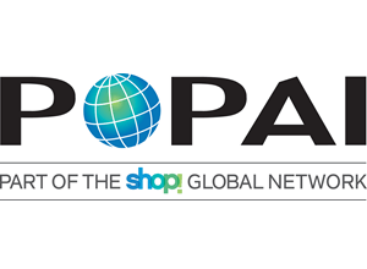POPAI-news: No more Flying Dutchman
POPAI and Shop!* chapters keep in touch and the member organizations are constantly informing each other about the consequences of the virus situation, with particular regard to the development of the Retail, the FMCG sector and the instore industry. In the Benelux stores, it is mandatory to have an entrance policy. Multilingual communication also helps with orientation.
Panic shopping is over, shelf and warehouse stocks have returned to normal, although every day supply of certain categories may slip – says Leo van de Polder, Shop! Global Development Director, former Managing Director of POPAI Benelux.
Think about others
The Dutch also follow the general rules, do not wander around, stay home and go shopping alone or two. However, their social sense is unbroken and they campaign in many areas for the care and attention of others.
Some supermarket chains provide front-line „essential workers”, police, health care employees and institutions with a separate pick-up points to get the items ordered faster and easier.
Take care of others, so buy only the essential things you need and not more – warns the sign to avoid stockpiling.
Buy now a restaurant gift card to support your favorite places survive so they can reopen and have a place to sit in again – they encourage on-premise support.
Some hotels (Fletcher, van de Valk) accommodate patients who do not need hospitalization but do not want to go home to avoid endangering their families.
Certain alcoholic beverage companies collaborate to make alcohol for the hand disinfectant industry.
New store etiquette
Each store must have an entrance policy. The posters with icons show what the new rules of shopping are. A shop where this is not clearly displayed can face a heavy fine. They declare how many people can enter the store at the same time so that there is no more than 1 buyer per 10 square meters inside.
The use of shopping carts and shopping baskets in smaller places are mandatory as they also help to keep distance. Where both devices are allowed, they have to pay at a separate checkouts so the customers who bought less can leave the store sooner. Hygiene is provided at the entrance by disinfectant and protective tissues. Anti-virus plexiglass walls also protect the health of cashiers and customers.
POP and instore tools manufacturers constantly produce and deploy communication materials concerning COVID-19. The government has made multilingual poster templates outlining general regulations that are easy to tailor and print for a particular store, so even the store owner can make the important information needed. What’s more, independent retailers can keep up with the latest developments and things to do, new products and changes in brands and customer needs through online courses.
* POPAI, from 2015 named Shop! is an international organization of the Marketing and Retail industry which headquarters placed in Chicago and Hollywood Florida, representing nearly 2000 local offices. Hungary joined with the POPAI Hungary Association in 2003, which has since then been a nonprofit professional, educational, research and knowledge transfer organisation active mainly in the FMCG sector. Read more: popai.hu
Related news
Records and innovations
🎧 Hallgasd a cikket: Lejátszás Szünet Folytatás Leállítás Nyelv: Auto…
Read more >Related news
MOHU: 5,200 return points are in operation, but 47 larger settlements still do not have RE points – public “enema” machines may be introduced
🎧 Hallgasd a cikket: Lejátszás Szünet Folytatás Leállítás Nyelv: Auto…
Read more >









